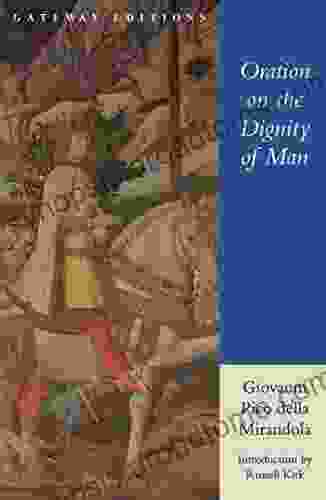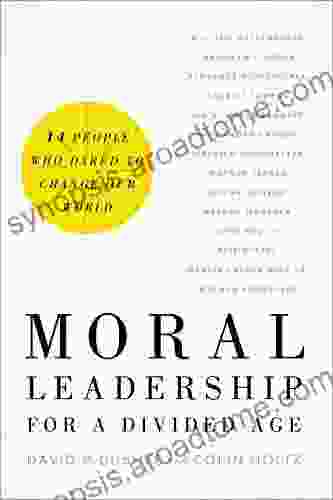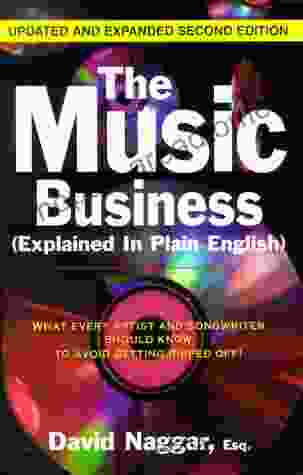Oration on the Dignity of Man: A Must-Read for Every Thoughtful Mind

In the annals of human thought, few works have captured the essence of our nature and potential as profoundly as Giovanni Pico della Mirandola's Oration on the Dignity of Man. Written in 1486, this seminal work of Renaissance humanism is a tour de force that explores the unique place of human beings in the cosmos and the limitless possibilities that lie within us.
4.5 out of 5
| Language | : | English |
| File size | : | 219 KB |
| Text-to-Speech | : | Enabled |
| Screen Reader | : | Supported |
| Enhanced typesetting | : | Enabled |
| Word Wise | : | Enabled |
| Print length | : | 71 pages |
Mirandola, a brilliant philosopher and scholar, believed that humans are the most privileged and enigmatic creatures in creation. Unlike other beings, we are not confined to a predetermined form or nature. Instead, we are endowed with the extraordinary gift of free will and the ability to shape our own destiny.
In his Oration, Mirandola paints a vivid picture of human potential. He writes that we have the capacity to rise above the animal kingdom and embrace the divine. We can cultivate our intellect, refine our virtues, and pursue knowledge and wisdom. Through our actions and choices, we can create a life of meaning and purpose.
Mirandola's vision of human dignity is not without its challenges. He acknowledges that we also have the potential for evil and destruction. But he argues that our freedom and creativity are essential for our growth and development. By embracing our full potential, we can overcome our shortcomings and strive for greatness.
The Oration on the Dignity of Man is a timeless work that continues to resonate with readers today. Its message of human potential and responsibility is as relevant now as it was in the 15th century. Whether you are a student of philosophy, a seeker of spiritual truth, or simply someone who is curious about the meaning of life, this book is a must-read.
Why Read the Oration on the Dignity of Man?
There are many reasons why you should read the Oration on the Dignity of Man. Here are just a few:
- To understand the origins of humanism. Mirandola's Oration is considered one of the foundational texts of Renaissance humanism, a movement that emphasized the importance of human reason and experience over religious dogma.
- To explore the nature of human potential. Mirandola argues that humans have the potential to achieve great things, both intellectually and morally. He provides a compelling vision of what it means to be truly human.
- To confront the challenges of human existence. Mirandola acknowledges that humans also have the potential for evil. He explores the nature of sin and the challenges we face in living a good life.
- To find inspiration and guidance. The Oration on the Dignity of Man is a powerful and inspiring work that can help you to better understand yourself and your place in the world.
Free Download Your Copy Today!
The Oration on the Dignity of Man is available in a variety of formats, including print, ebook, and audiobook. Free Download your copy today and embark on a journey of self-discovery and enlightenment.
Click here to Free Download your copy now: [link to Free Download book]
About the Author
Giovanni Pico della Mirandola (1463-1494) was an Italian philosopher, humanist, and scholar. He is best known for his Oration on the Dignity of Man, which he delivered at the University of Rome in 1486. Mirandola was also a prolific writer on a wide range of topics, including philosophy, theology, and astrology. He was a major figure in the Renaissance movement and his work had a profound influence on the development of Western thought.
Additional Resources
- Oration on the Dignity of Man (Gutenberg Project)
- Giovanni Pico della Mirandola (Internet Encyclopedia of Philosophy)
- Giovanni Pico della Mirandola (Stanford Encyclopedia of Philosophy)
4.5 out of 5
| Language | : | English |
| File size | : | 219 KB |
| Text-to-Speech | : | Enabled |
| Screen Reader | : | Supported |
| Enhanced typesetting | : | Enabled |
| Word Wise | : | Enabled |
| Print length | : | 71 pages |
Do you want to contribute by writing guest posts on this blog?
Please contact us and send us a resume of previous articles that you have written.
 Book
Book Novel
Novel Page
Page Chapter
Chapter Text
Text Story
Story Genre
Genre Reader
Reader Library
Library Paperback
Paperback E-book
E-book Magazine
Magazine Newspaper
Newspaper Paragraph
Paragraph Sentence
Sentence Bookmark
Bookmark Shelf
Shelf Glossary
Glossary Bibliography
Bibliography Foreword
Foreword Preface
Preface Synopsis
Synopsis Annotation
Annotation Footnote
Footnote Manuscript
Manuscript Scroll
Scroll Codex
Codex Tome
Tome Bestseller
Bestseller Classics
Classics Library card
Library card Narrative
Narrative Biography
Biography Autobiography
Autobiography Memoir
Memoir Reference
Reference Encyclopedia
Encyclopedia Deborah W Ellis
Deborah W Ellis Rino Micheloni
Rino Micheloni David J Chalmers
David J Chalmers David T Abbots
David T Abbots Ulrich L Lehner
Ulrich L Lehner David J Schlafer
David J Schlafer Patricia Solaimanian
Patricia Solaimanian John James
John James Soraya Chemaly
Soraya Chemaly David Hows
David Hows David Podlipny
David Podlipny Sharron Rose
Sharron Rose Juan Blea
Juan Blea David Spangler
David Spangler Miguel Fliguer
Miguel Fliguer David Tracey
David Tracey Nancymarie Phillips
Nancymarie Phillips Jeanne Lenzer
Jeanne Lenzer Deprise Brescia
Deprise Brescia Oliver Schliebusch
Oliver Schliebusch
Light bulbAdvertise smarter! Our strategic ad space ensures maximum exposure. Reserve your spot today!

 Jack LondonUp and Running with Autodesk Advance Steel 2024 Volume: A Comprehensive Guide...
Jack LondonUp and Running with Autodesk Advance Steel 2024 Volume: A Comprehensive Guide... Chance FosterFollow ·9.9k
Chance FosterFollow ·9.9k Avery SimmonsFollow ·19.4k
Avery SimmonsFollow ·19.4k Ira CoxFollow ·18.8k
Ira CoxFollow ·18.8k Miguel NelsonFollow ·6.7k
Miguel NelsonFollow ·6.7k James JoyceFollow ·19.1k
James JoyceFollow ·19.1k Alfred RossFollow ·16.3k
Alfred RossFollow ·16.3k Deion SimmonsFollow ·14k
Deion SimmonsFollow ·14k Edgar CoxFollow ·6.9k
Edgar CoxFollow ·6.9k

 Isaac Bell
Isaac BellUnveiling the Enchanting World of Customs and Crafts:...
Embark on a captivating journey through the...
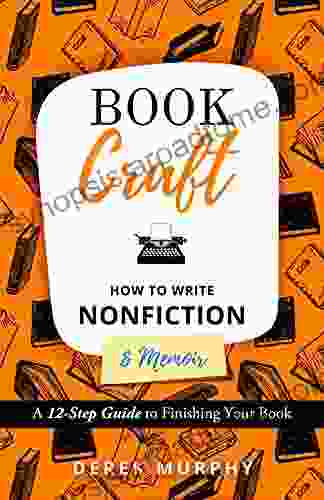
 Allen Parker
Allen ParkerHow to Write a Nonfiction Memoir: The Bookcraft Guide
Have you ever wanted...

 Nathaniel Powell
Nathaniel PowellCelebrate Spring's Arrival with Traditions from Around...
Immerse Yourself in the Vibrant Cultures of...
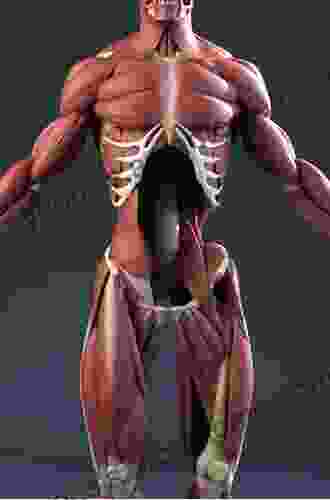
 Hunter Mitchell
Hunter MitchellThe Skeletal Muscles of the Human Body: An In-Depth Guide
The skeletal muscles of the human body are...
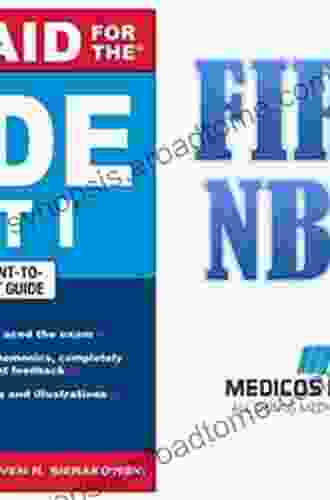
 Justin Bell
Justin BellFirst Aid for the NBDE: Your Essential Guide to Exam...
Master the NBDE...
4.5 out of 5
| Language | : | English |
| File size | : | 219 KB |
| Text-to-Speech | : | Enabled |
| Screen Reader | : | Supported |
| Enhanced typesetting | : | Enabled |
| Word Wise | : | Enabled |
| Print length | : | 71 pages |


